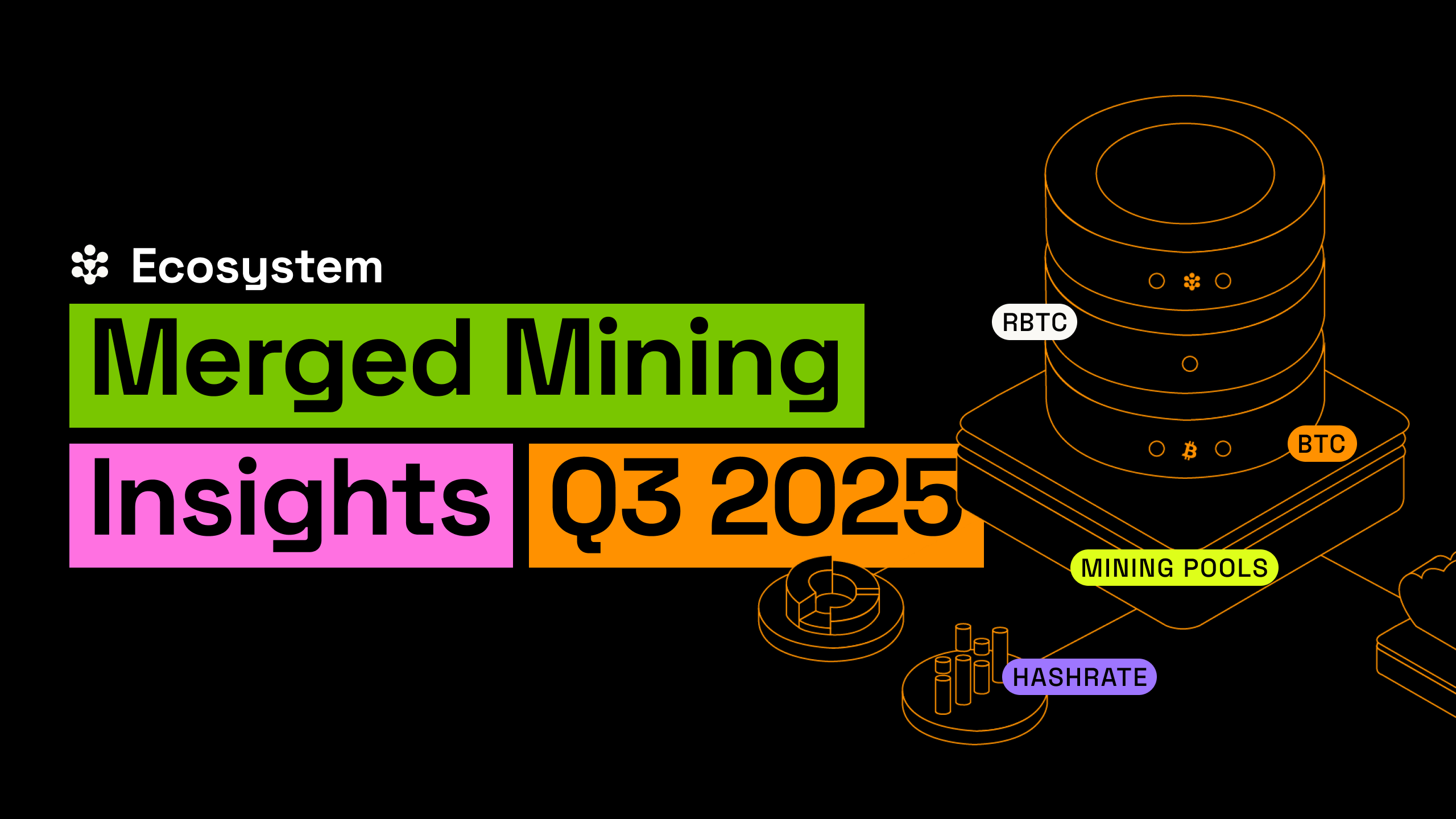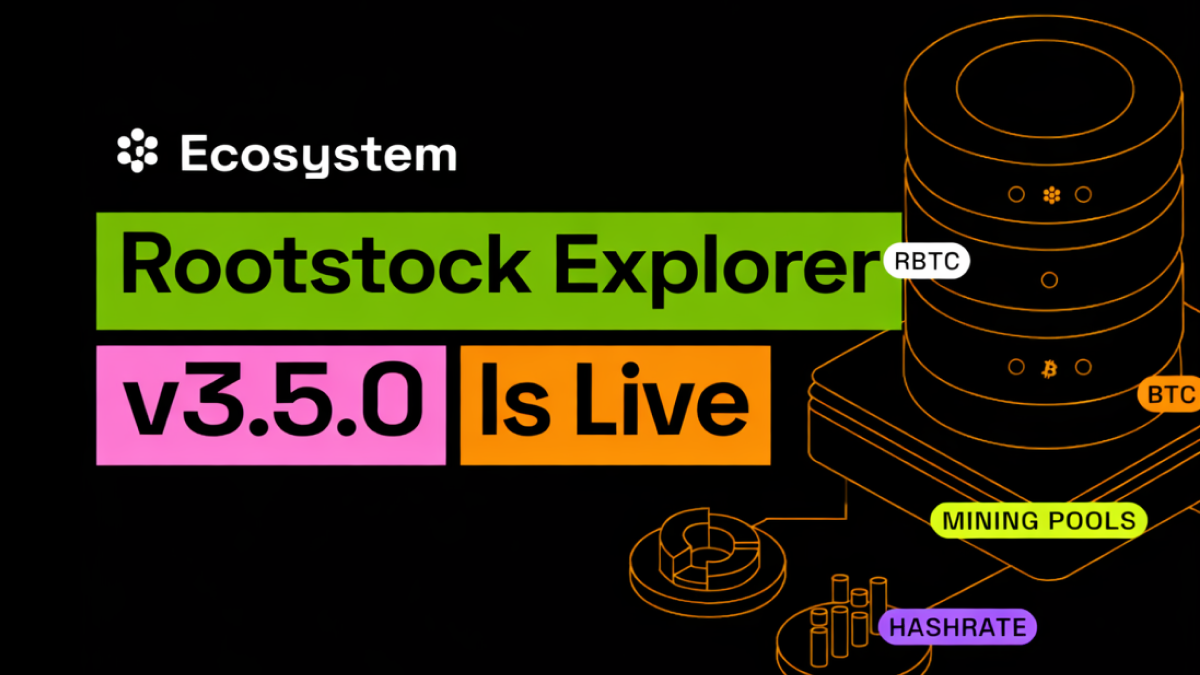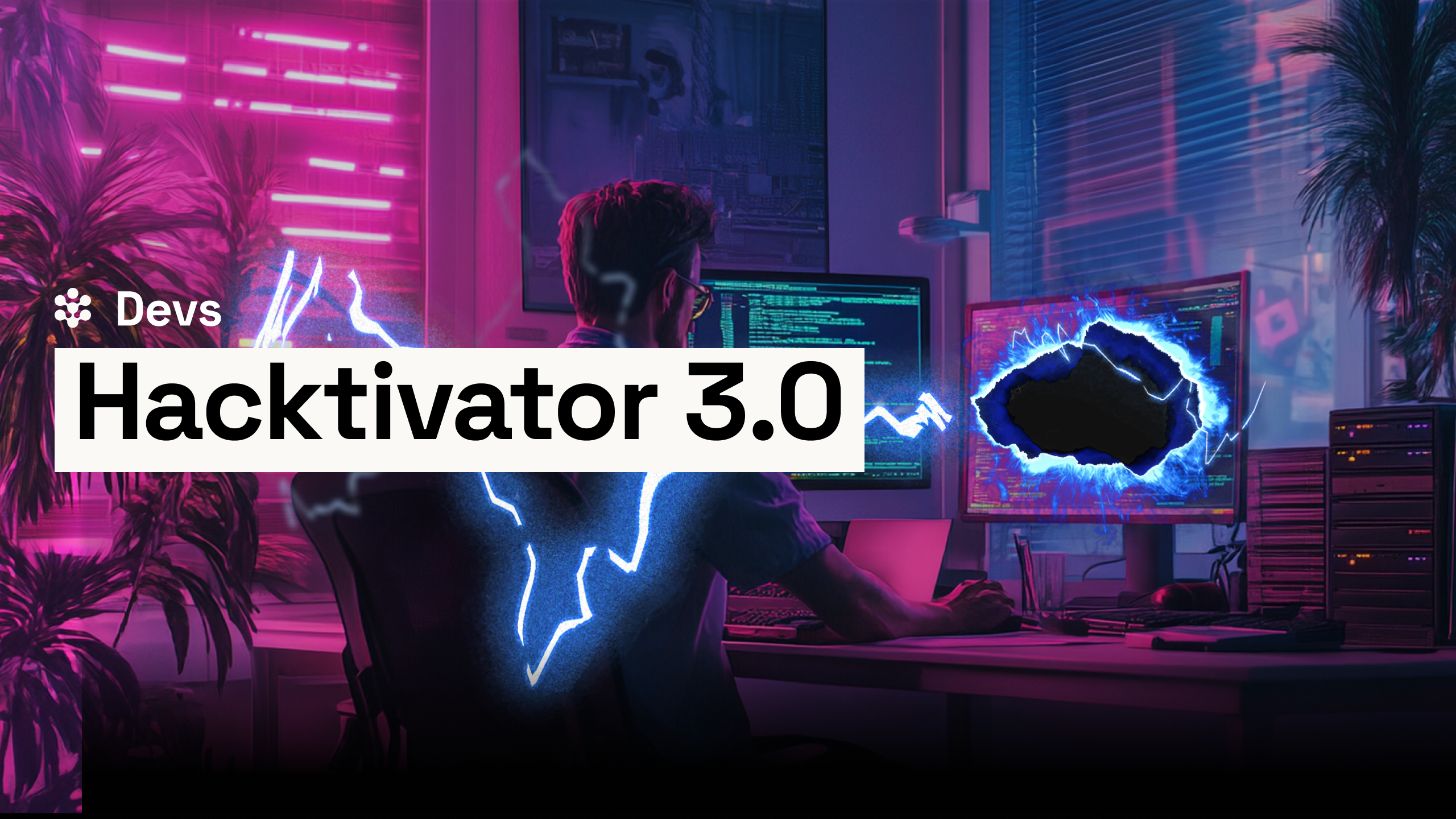In this blogpost we will analyze different blockchains doing merged mining with bitcoin. The focus will be on comparing the profits of the miners and how sidechains pay rewards to them.
First, we will review merged mining and some related concepts. Merged mining is the act of using work done on a blockchain (in our case Bitcoin) on one, or more than one, Auxiliary blockchain and to accept it as valid on its own chain, using Auxiliary Proof-of-Work (AuxPoW). AuxPoW is the relationship between two blockchains for one to trust the other’s work as their own. It is important to mention that the parent blockchain does not need to be aware of the AuxPoW logic, as blocks submitted to it are still valid blocks.
A transaction set is assembled for both blockchains. The hash of the AuxPoW block header is then inserted in the coinbase transaction and submitted to the Parent blockchain’s Proof-of-Work (PoW). If the merge miner solves the block at the difficulty level of either blockchain or both blockchains, the respective block(s) are reassembled with the completed PoW and submitted to the correct blockchain. In the case of the Auxiliary blockchain, the Parent’s block hash, Merkle tree branch and coinbase transaction are inserted in the Auxiliary block’s AuxPoW header. This is to prove that enough work that meets the difficulty level of the Auxiliary blockchain was done on the Parent blockchain. The propagation of Parent and Auxiliary blocks is totally independent and only governed by each chain’s difficulty level.
Now, we will present the sidechains that will be compared on mining profitability.
RSK (RBTC)
- RSK is the first open source Smart Contract platform secured by the Bitcoin Network.
- RSK adds value and expand functionality to the Bitcoin ecosystem by providing smart contracts and greater scalability.
- Blocks are generated every 30 seconds on average.
- Block rewards come from transaction fees since there is no block generation reward.
Namecoin (NMC)
- Namecoin was the first fork of Bitcoin.
- Namecoin is used to securely record and transfer arbitrary names (keys) and attach a value (data) to the names (up to 520 bytes).
- Blocks are generated every 10 minutes on average.
- 12.5 NMC are the block generation reward and 0,002 NMC are the fee rewards on average.
V-Cash (XVC)
- V-Cash combines characteristics of Bitcoin blockchain integrated with MimbleWimble technology.
- Blocks are generated every 10 minutes on average.
- 50 XVC are the block generation reward and 0,001 XVC are the fee rewards in average.
Emercoin (EMC)
- Emercoin uses two mechanisms to validate blocks, PoW merged mining with Bitcoin and Proof-of-Stake (PoS) mining.
- Emercoin supports a variety of business operations and services, including: EmerDNS, Emer SSH, EmerSSL, EmerDPO and many others.
- Blocks are generated every 10 minutes on average.
- 2,65 EMC are the block generation reward and 0,001 EMC are the fee rewards on average.
Devcoin (DVC)
- Devcoin supports open source programmers and writers worldwide.
- 90% of Devcoin generation goes to open source projects with bounties for accomplishments and regular payments for active developers.
- Blocks are generated every 10 minutes on average.
- 5000 DVC are the block generation rewards.
Huntercoin (HUC)
- Huntercoin was released in February 2014 as a live experimental test to see how blockchain technology could handle full on game worlds.
- A simple game is played to collect coins on a map of which has an element of Player vs Player combat to fight over resources.
- Blocks are generated every 60 seconds on average.
- 1 HUC is the block generation reward and the fee reward is 4% of coins in the world.
Ixcoin (IXC)
- IxCoin is intended to closely mirror code updates to Bitcoin to allow for easy interoperability with Bitcoin-related third party services and APIs.
- Blocks are generated every 10 minutes on average.
- 1 IXC is the block generation reward.
Finally, the chart below shows the monthly rewards, per sidechain, that miners earn by doing merged mining.
[table id=17 /]
Where Average Block Reward is the amount of Native Coin earned by the miners per block including block generation rewards and fees rewards (average for the month of September 2019). Block Time is the average time of mining process. Monthly Reward is the product of Average Block Reward and the amount blocks mined per month. Native Coin Price is the prices of native coins in United States dollars (USD) using reference prices from CoinMarketCap on the 27/09/2019. Finally, Monthly Rewards is the product of Monthly Reward (Native Coin) and Native Coin Price (USD).


